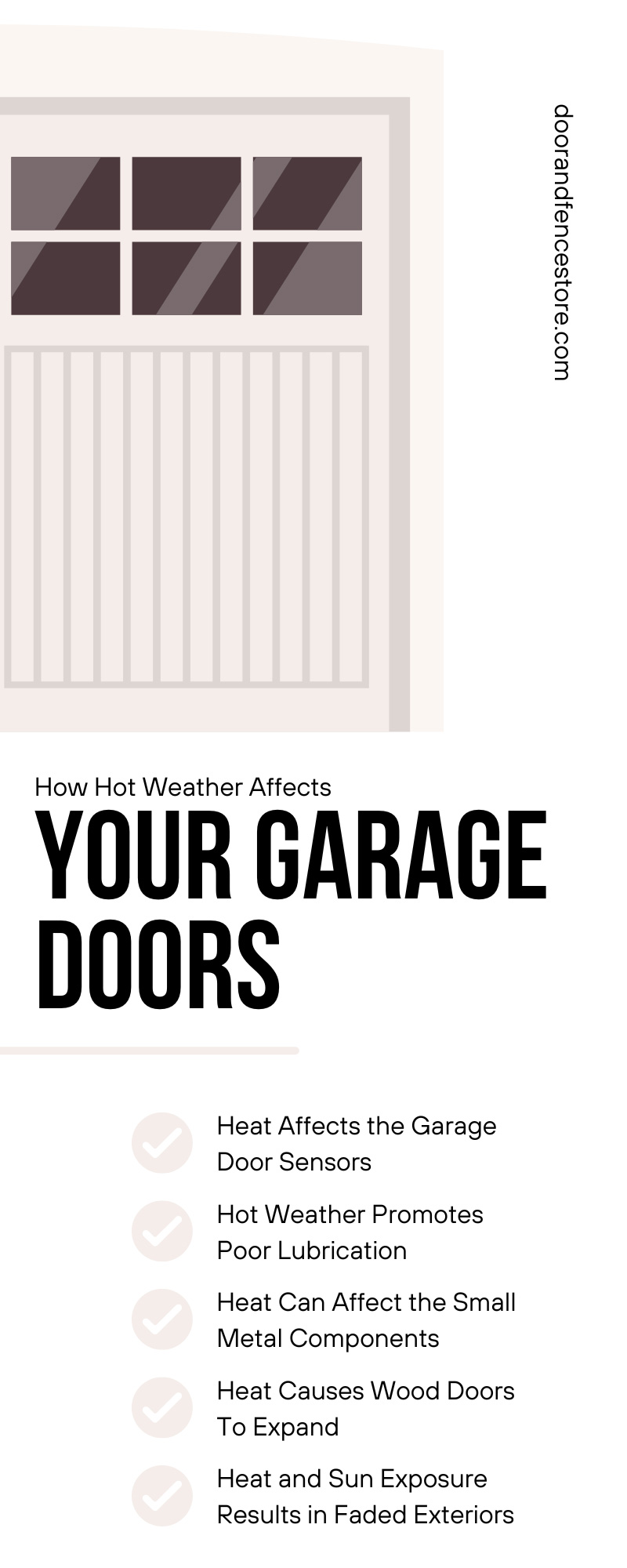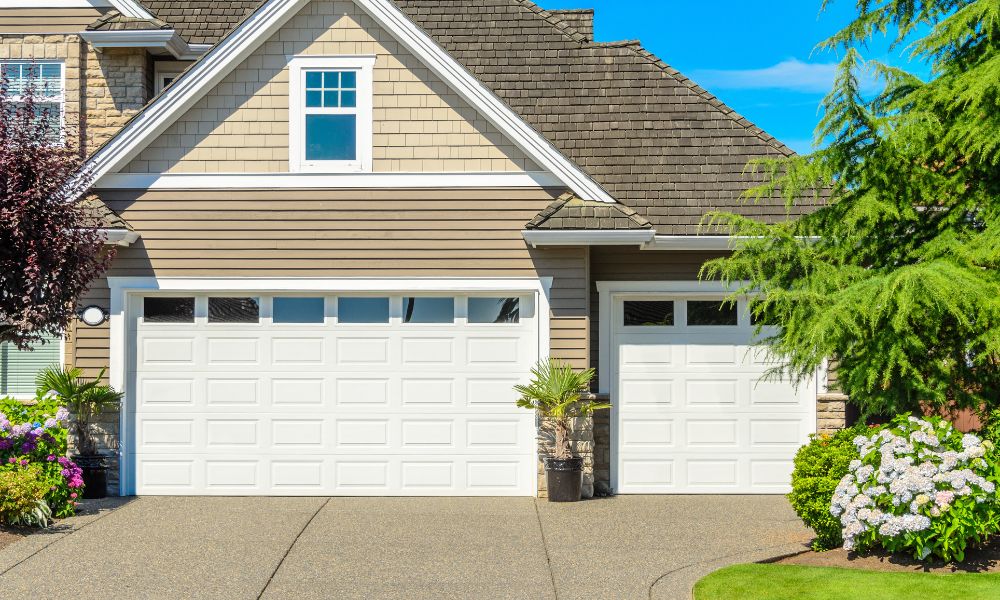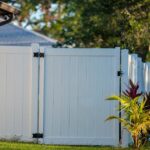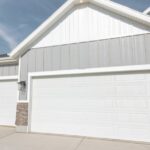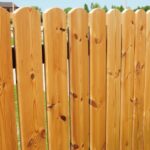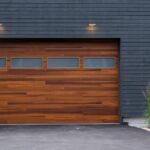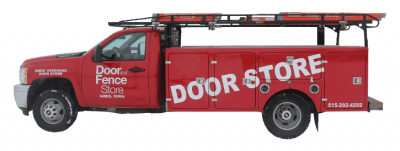Homes, garages, cars, outdoor furniture, and more continually experience the sun’s rays. Ultraviolet rays beam down and wither away the appearance and structural integrity of a wide variety of materials.
Garage doors are one of homeowners’ biggest concerns. For those living in hot climates or blazing summers, your garage door is constantly at risk of damage without maintenance and care. Learn the potential risks hot weather poses and how it affects garage doors.
Heat Affects the Garage Door Sensors
Garage door sensors prevent the door from closing if they detect an object or person in its path. They’re often at the bottom of the door; these sensors use infrared technology to send a beam across the length of the doorway to avoid injuries or structural damage.
Moreover, the radiant sunlight in hot conditions may disrupt the infrared beam connecting the sensors. If the sunlight directly hits one of the sensors, it can overpower the beam, causing the garage door system to mistakenly assume there is an obstacle in the door’s path.
Prolonged exposure to high temperatures can impact the electronic components housed within the sensors, too. It may cause malfunctions or a total breakdown. Regularly check the garage door’s alignment during high temperatures. It’s crucial to address heat-related issues promptly to prevent any disruptions in sensor functionality.
Hot Weather Promotes Poor Lubrication
Garage doors feature several metal moving parts. The springs, tracks, hinges, and rollers all require lubrication to function smoothly and quietly. Lubrication reduces for seamless operation during each cycle.
Hot weather causes lubricants to become thinner and less viscous. As a result, the moving metal parts will start to rub against one another, grind down the metal, and increase the risk of operational malfunctions.
Sufficient lubrication is the key to preventing significant damage to your garage door during high temperatures. Select a high-quality, heat-resistant lubricant. Then, apply it to each of the metal moving parts.
Staying up to date with lubrication maintenance is vital for a garage door to operate safely and efficiently. Metal lubricants will preserve the integrity of these parts, reduce friction, and minimize strain on the garage door motor.
Heat Can Affect the Small Metal Components
The big components—such as the rollers and springs—are the biggest concern. Nevertheless, don’t overlook the smaller metal components of the garage door.
Hot weather can affect the screws, bolts, and nuts. These components keep the system intact and guide the door’s movement through tracks and brackets. High temperatures can expand these metal parts, leading to misalignment and affecting the door’s smooth operation.
With time, repeated heating and cooling can cause metal fatigue. Therefore, the parts are more prone to cracking or breaking. This compromises the overall structural integrity of the garage door system.
Intense heat may also degrade the metal surface. Rusting is a common consequence of high temperatures, humidity, and poor maintenance habits.
During the summer, clean the small metal components and apply a protective coating or a high-temperature-resistant lubricant. This precaution will reduce the likelihood of garage door malfunctions as well as the need to replace worn-down nuts, bolts, and screws.
Heat Causes Wood Doors To Expand
Wood naturally expands when exposed to heat. These garage doors are very durable, but extreme temperatures can pose a threat to their structural integrity.
The expansion can cause the doors to become misaligned with their tracks. In severe cases, the door might become jammed and incapable of moving at all.
The heat can also exacerbate the natural swelling and contraction cycle of wood, leading to more significant gaps and warping over time. This warping causes consequences for the door’s appearance and structural strength and places strain on other garage door components.
The Switch to Steel Garage Doors
If you’re having trouble maintaining wood garage doors, consider replacing the material with steel. Steel’s robust nature means it is less likely to suffer from the detrimental effects of high temperatures, such as misalignment or swelling that impacts functionality. Not to mention, steel doors require less maintenance, so they can effortlessly provide better insulation, keeping garages cooler during the hot months.
Heat and Sun Exposure Results in Faded Exteriors
Prolonged exposure to the sun’s harsh UV rays significantly affects the outward appearance of garage doors and causes them to fade. Different materials used in garage doors, such as wood, metal, and fiberglass, respond to sunlight exposure in various ways, but all are susceptible to some degree of color degradation.
Wood Garage Doors
The sun strips wood of its rich color and grain. It may result in a faded, grayed appearance. This change occurs because UV rays break down the wood’s natural fibers as well as the paint or stain applied.
Wood doors need consistent maintenance. The key to keeping them sturdy and looking great is to add a sealant or fresh coat of paint with UV-resistant properties.
Metal Garage Doors
Metal garage doors—including steel and aluminum—can also experience fading. When exposed to prolonged sunlight and high temperatures, the protective coatings will gradually degrade. The sun breaks down the pigments and leaves behind a dull surface.
Fiberglass Garage Doors
Fiberglass garage doors are incredibly durable, but years of sun exposure and zero maintenance will lead to a faded appearance. The gel coat finish on fiberglass doors helps protect them from UV damage. However, the finish can wear down, leaving the door vulnerable to fading.
Hot Weather Can Lead to Storm Damage
Hot weather often cultivates hostile storms. High winds may warp panels, dislodge doors, or cause collapse. Lightning may fry electrical components and render the garage useless.
Aggressive summer thunderstorms may hurl debris, including branches, rocks, and more, toward your home. The impact can lead to dents and cracks in the door. This damage causes aesthetic imperfections, but it can also hinder the garage useless.
Preventing storm damage requires regular maintenance and readiness. Strengthen doors with braces or impact-resistant models for extra defense. Secure loose items to prevent them from turning into projectiles during storms.
The Door and Fence Store is here to help you implement proactive measures such as applying protective coatings and lubricants. We offer residential garage door service to ensure that hot weather doesn’t negatively affect the quality or appearance of your garage door. Contact us today to see how we can help maintain a stunning and structurally sound garage for your home.
